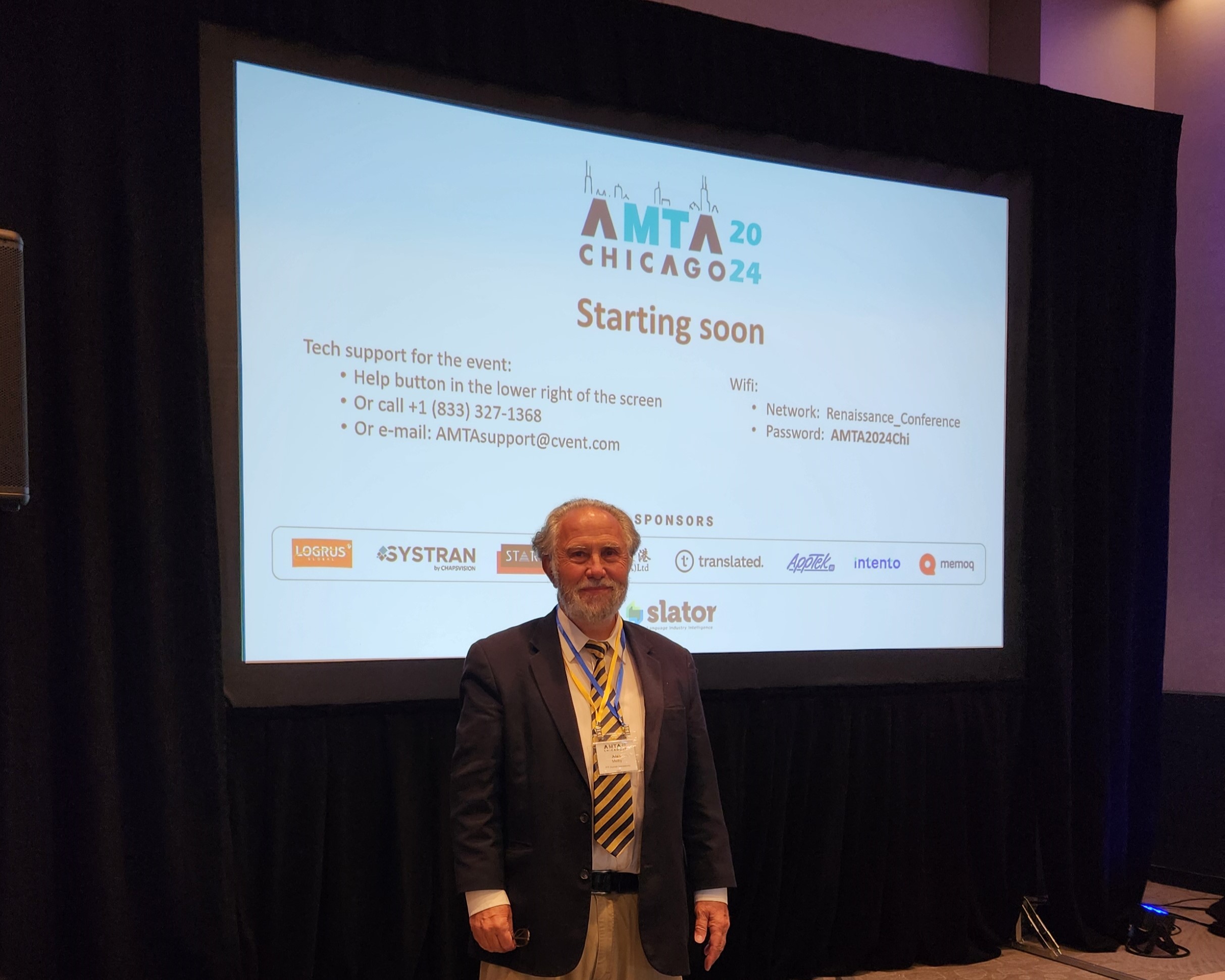
On 30 September 2024, Alan Melby, Chair of the FIT Standards Standing Committee, represented FIT at the AMTA conference in Chicago, Illinois. AMTA is an MT conference that brings together researchers, users, and providers of MT from academia, industry, and government. When he asked conference organisers if they had chosen 30 September for its significance within the translation and interpreting community as International Translation Day (ITD), they responded, puzzled, ‘what is International Translation Day?’
Melby seized the opportunity to make professional translators more visible by asking for a few minutes during the opening ceremony to greet the attendees on behalf of FIT. As a result, nearly everyone at the conference learned more about FIT and ITD.
It is especially important in the age of AI for members of the MT community to be aware that translation is a profession, and that FIT is confident about its future. It is also important for the general public to know whether translation output can be trusted as corresponding to the source text. One way to do so is through labels.
In addition to greeting attendees on behalf of FIT, Melby gave a presentation on the first day of the conference about the labels project. Its objective is to encourage the use of appropriate labels on translation output to indicate the process used, the qualifications of any humans involved, and the person or organisation taking responsibility for the output that reaches end users.
The idea of labels is not new. An article in the December 2021 issue of Translatio, which can be viewed in the Archive section (scroll down to the table and click the corresponding link), proposed building on the well-known notion of labels on consumer products, such as food. That article stated the following:
What if FIT and some of its external partners […] agreed to ask everyone who delivers [translation output] to end users (i.e., to translation “consumers”) to explicitly label every document […] as [either] MT (for raw machine translation) or HT (for human translation or post-edited machine translation)? The idea would be to treat those labels as a form of consumer protection, analogous to food labels such as GF (gluten free).
The original 2021 labels, MT and HT, have evolved into the current 2024 proposal: PVT (professionally verified translation) and UVT (un-verified translation), and these labels are being standardised by ASTM International. Readers can view a playback of the labels presentation at the AMTA conference on YouTube here.
Readers who are interested in following the development of the labels project are invited to visit the Tranquality website, which will be updated regularly, or to check with the FIT Technology Standing Committee, for which supporting the labels project is an approved activity.
Alan Melby (FIT Standards Standing Committee)
